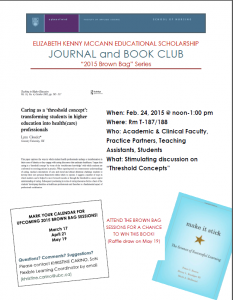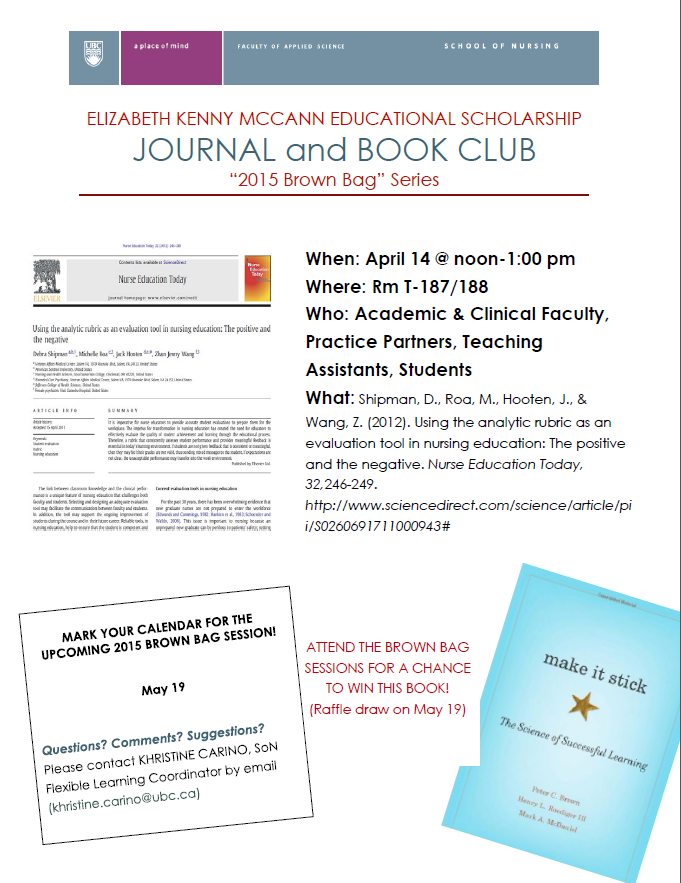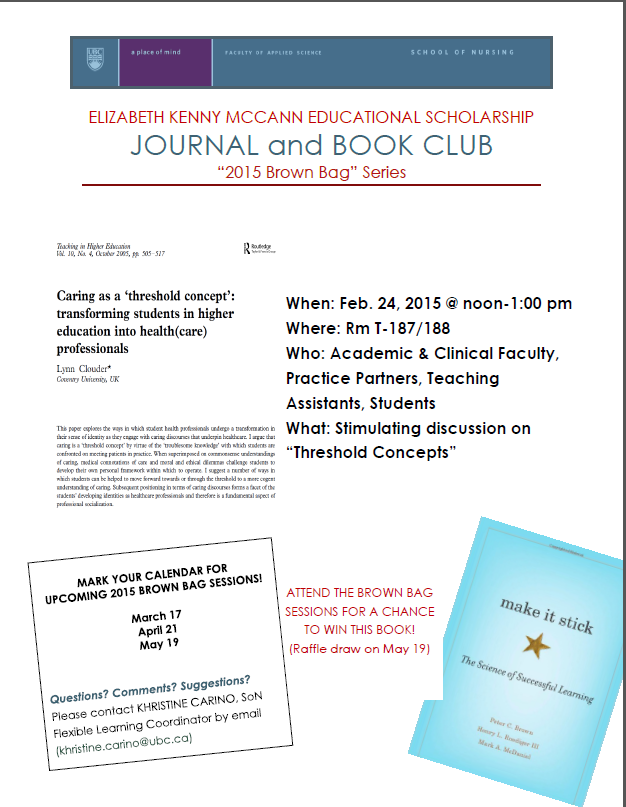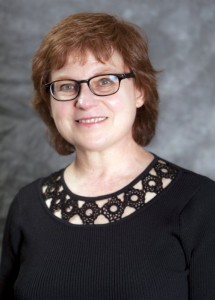 By Maura MacPhee
By Maura MacPhee
Our first 2015 journal article was: “Caring as a ‘threshold concept’: transforming students in higher education into health(care) professionals” by Lynn Clouder.The article can be found in Teaching in Higher Education, 10(4), 505-517.
The concepts we discussed from the article: threshold concept versus core concept, troublesome knowledge, non-linear learning, integration, disciplinary boundaries, liminality, critical reflection, emotional capital.
Threshold concepts are those concepts that represent transformative learning—when a student gains a new identity of themselves as a professional within their discipline. The article argues that this is an emotional transformation that can be difficult and “troublesome” for students—as they grapple with new identities and become professionally socialized. The “liminal space” refers to those occasions when students are dealing with “unsettling episodes” (e.g., unethical behaviours in practice areas) that they must emotionally resolve. Once a student is transformed and has a new identity, there is no going back.
In our group, we discussed ways of recognizing these troubling emotional issues for students, and we identified some ways of helping students cope with new identity development. Some strategies:
1. Critical reflection/journaling with constructive feedback
2. Time after clinicals (i.e., post-clinical conferences) for debriefing
3. Peer support groups for sharing (neutral faculty facilitator)
There was general agreement that “caring” is a threshold concept for nursing. But how do we differentiate between caring in the nursing profession and caring by other healthcare professionals? Note: The article was written from a physiotherapy perspective. The group commented that we need to have more discussions during curriculum revisions with respect to our threshold concepts and how we should teach them.
We briefly discussed the four phases of caring (Tronto, 1993) that were mentioned in the article.
1. Caring about “involves recognition that caring is needed” (assessment)
2. Taking care “involves taking some responsibility for the identified need and determining how to respond to it” (diagnosis)
3. Care-giving “involves meeting of need for care, direct contact and physical work with clients at a care-giving level” (planning, implementation)
4. Care receiving “involves (the) client’s response to care” (evaluation)
Is there a parallel between these types of caring and nursing process? Is nursing process our unique, disciplinary approach to caring? (See the nursing process connections in bold).
As noted in the article, in many instances, healthcare professionals focus the “cerebral” work of their disciplines at #1 and #2. #3 may be the essence of bedside nursing, and yet, we often give it away to others as functional tasks. This is happening in nursing practice–a shift towards skill mix with practical nurses and care aides delivering the bedside care.
Two questions were posed for further reflection. Please share your comments to these questions.
1. How do we level threshold concepts, such as caring, in an accelerated program?
2. How do we evaluate transformative learning in students?
Stay tuned for the next brown bag on March 17th (St. Patrick’s Day) from noon-12:50.-Maura MacPhee



